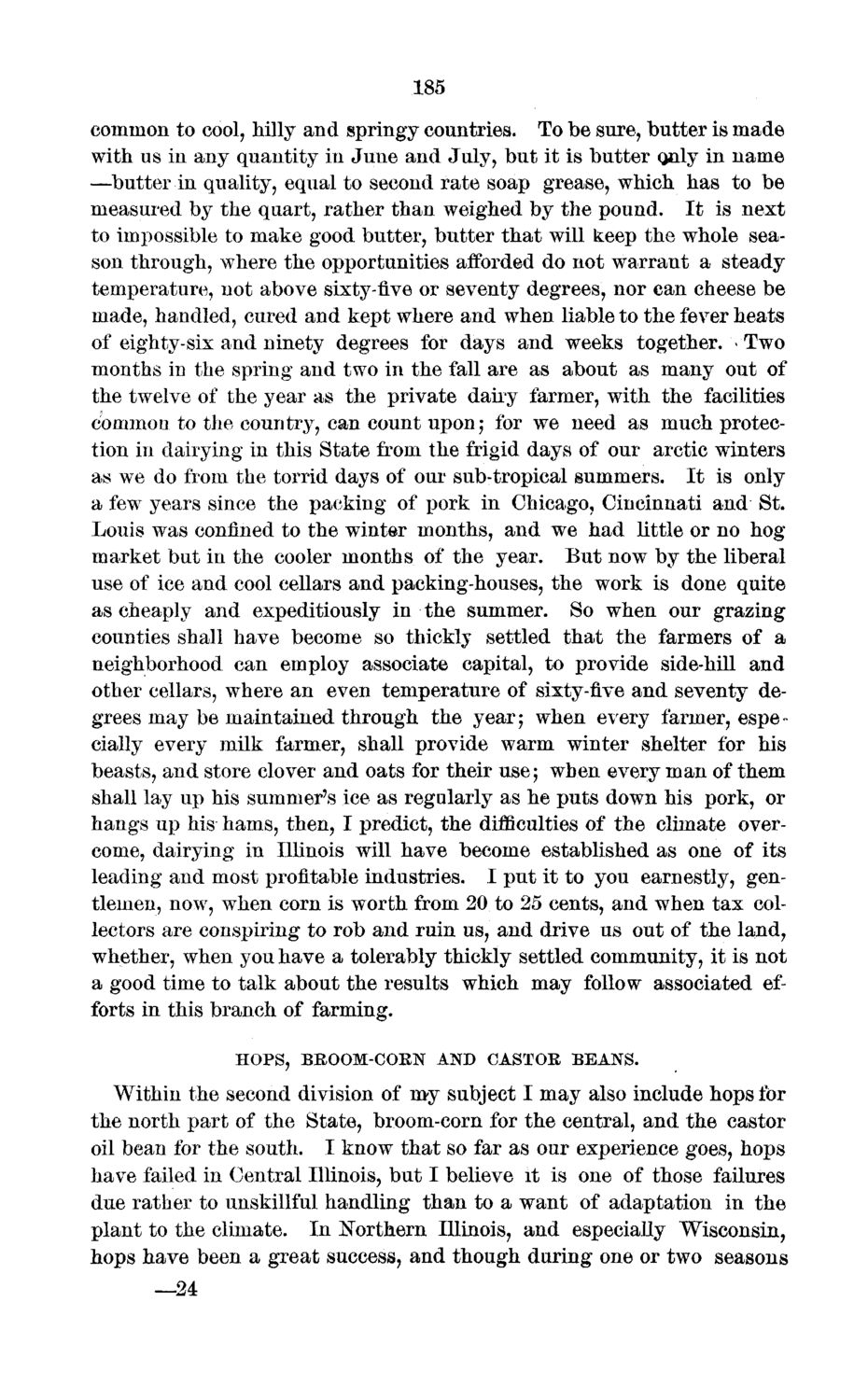| |
| |
Caption: Board of Trustees Minutes - 1873
This is a reduced-resolution page image for fast online browsing.

EXTRACTED TEXT FROM PAGE:
185 common to cool, hilly and springy countries. To be sure, butter is made with us in any quantity in June and July, but it is butter only in name —butter in quality, equal to second rate soap grease, which has to be measured by the quart, rather than weighed by the pound. It is next to impossible to make good butter, butter that will keep the whole season through, where the opportunities afforded do not warrant a steady temperature, not above sixty-five or seventy degrees, nor can cheese be made, handled, cured and kept where and when liable to the fever heats of eighty-six and ninety degrees for days and weeks together. Two months in the spring and two in the fall are as about as many out of the twelve of the year as the private dairy farmer, with the facilities common to the country, can count upon,- for we need as much protection in dairying in this State from the frigid days of our arctic winters as we do from the torrid days of our sub-tropical summers. It is only a few years since the packing of pork in Chicago, Cincinnati and St. Louis was confined to the winter months, and we had little or no hog market but in the cooler months of the year. But now by the liberal use of ice and cool cellars and packing-houses, the work is done quite as cheaply and expeditiously in the summer. So when our grazing counties shall have become so thickly settled that the farmers of a neighborhood can employ associate capital, to provide side-hill and other cellars, where an even temperature of sixty-five and seventy degrees may be maintained through the year; when every farmer, especially every milk farmer, shall provide warm winter shelter for his beasts, and store clover and oats for their use; when every man of them shall lay up his summer's ice as regularly as he puts down his pork, or hangs up his hams, then, I predict, the difficulties of the climate overcome, dairying in Illinois will have become established as one of its leading and most profitable industries. I put it to you earnestly, gentlemen, now, when corn is worth from 20 to 25 cents, and when tax collectors are conspiring to rob and ruin us, and drive us out of the land, whether, when you have a tolerably thickly settled community, it is not a good time to talk about the results which may follow associated efforts in this branch of farming. HOPS, BROOM-CORN AND CASTOR BEANS. Within the second division of my subject I may also include hops for the north part of the State, broom-corn for the central, and the castor oil bean for the south. I know that so far as our experience goes, hops have failed in Central Illinois, but I believe it is one of those failures due rather to unskillful handling than to a want of adaptation in the plant to the climate. In Northern Illinois, and especially Wisconsin, hops have been a great success, and though during one or two seasons —24
| |